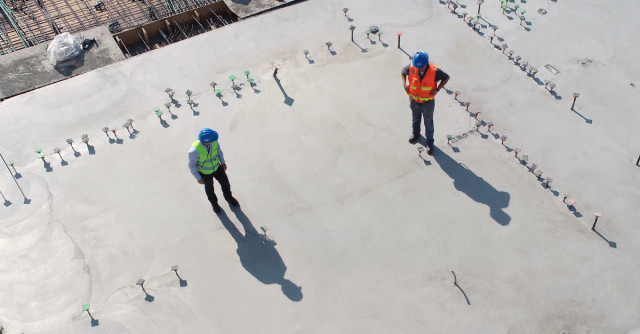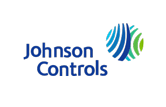Coronavirus & Construction: How to Support Your Team's Mental Health

At the heart of an industry characterized by tenaciousness, stoicism, and bravado lies a fact few outsiders are aware of: People are hurting.
For construction professionals, pain often goes well beyond the chronic physical aches and exhaustion that are par for the course to those exerting years of backbreaking labor. CDC studies show that — more than any other occupation — these workers are suffering from a serious mental health crisis, resulting in a rate of suicide that is nearly four times greater than the national average and five times more than all other construction-related deaths combined.
Add to that the overwhelming stress of the coronavirus pandemic, which has left construction pros in an environment marked by personal and professional uncertainty, and you’ve got a recipe for tragedy on tap, one that left unchecked has the power to dent the enormous strides in worker safety the field has achieved over the last two decades.
That’s why industry leaders are banding together to both foster awareness and offer resources for construction managers looking to promote mental health on their jobsites. Here’s what experts are advising.
Construction professionals and suicide
Based on demographics alone, the construction industry is fraught with opportunity for mental health issues among its workers. Reports highlight that this workforce is predominantly staffed by males (who are statistically more likely to die by suicide than women) and has a heavy concentration of middle-aged professionals (another high-risk group). What’s more, it’s a tough guy/tough gal workplace culture dominated by stoicism, pressure, and isolation — a potentially lethal combination when it comes to mental well-being.
Other contributing factors include the fact that construction workers often have limited or no access to healthcare, are frequently racked by chronic pain from years of hard labor, and are historically more prone to substance abuse problems. To top it off, many workers travel to find gigs, which can exacerbate feelings of loneliness and cause troublesome family dynamics.
Cal Beyer, VP of Workforce Risk & Mental Wellbeing at Cobb Strecker Dunphy Zimmerman (CSDZ), has spent years studying this phenomenon with his colleagues and identifying a set of core contributors. “The stress involved in the job is pressure-packed,” Beyer says. “Condensed schedules, daily scorecards, safety, quality, budget, schedule — those are key factors we’ve identified.”
“Then you add in the workforce issues and shortages and people trying to do more with less people and fill more roles themselves — that has definitely contributed,” says Michelle Walker, VP Finance and Administration at SSC Underground.
Impact of coronavirus on the industry’s mental health
Anxiety. Uncertainty. Job loss. Family strife. When it comes to the mental health issues beleaguering the construction industry, the COVID-19 pandemic has only added fuel to the fire. In many ways it’s a no-win situation for workers: They’re either still employed but feel exposed to a life-threatening illness, or have been laid off and are facing a whole other host of potential financial and health issues. And that doesn’t even begin to cover the daily stressors pros are facing at home, where friends, family, and other loved ones could be fighting for their own lives or livelihoods.
“Think about the complete uncertainty of this whole scenario,” says Mandi Kime, Director of Safety at AGC of Washington. “Whether you’re working or not working, none of us knows when this ends. We’re waiting for word from the government, we’re waiting for word from our employers. Even if you are working, there’s still an uncertainty of how long you’re going to work. And I would argue that this uncertainty is almost worse than just not having work or having to work.”
What’s more, Kime says, in today’s digital world construction pros are constantly inundated with news about the crisis; some of it credible and some of it not. “We’re all getting blasted with so much information about the spread and what that means for our workplaces; it’s almost too much to process,” she says.
The lack of control caused by the COVID-19 crisis is also counterproductive to a solid state of mind, Walker adds. “Having some semblance of control over your life is really important, especially if someone is already dealing with mental health issues or personal struggles,” she says. “And even if they’re still working, their spouses may not be. Even if they’re getting by, there are so many outside pressures they could be dealing with. You have to look at the whole person, and not just what is happening in the workplace.”
How jobsite leaders can promote workers’ mental health
Promoting sound mental health to your crew doesn’t have to take months of planning or be prohibitively expensive. Here are steps Beyer, Kime, and Walker say you can quickly take at your jobsite:
Offer constant communication
Especially during a time when workers are being bombarded by news from the media, employers and managers should act as a trusted source of information.
“We should make sure that those communication channels are open, that we’re getting information out, and that we’re available,” Walker says. “Maybe that’s a daily email, but workers should know that you’re going to be giving them current information that’s applicable to the workplace and their situation.”
It’s okay to acknowledge if you’re still working on an update due to changing circumstances, says Kime. Just don’t go silent.
And don’t forget to check in with crews who are currently not on-site.
Be human; acknowledge the struggle
Especially during this unprecedented time, don’t ignore the fact that workers are wrestling with issues. Leaders should be open and admit that the current environment is a challenge.
“Even though our struggles might not all be the same, they’re still valid,” says Kime. “Be a human being with your team when you’re talking about issues. You can acknowledge that there’s still a job to be done, but make space for people to be genuine and show who they are. Because if they’re distracted by it, then they’re not safe on the jobsite.”
Showcase an influencer who’s willing to be vulnerable
Sometimes it takes just one well-respected team member opening up to inspire others to do the same.
“One of our owners is a tough, strong guy who has horrible asthma, so he’s completely locked down because the coronavirus would be devastating to him,” says Walker. “We’ve got an example of ‘Here’s a big, strong guy who you all know, admire, and respect, and he’s very vulnerable to this and scared for his health. It’s normal if you’re also vulnerable and scared.’”
Check out resources from industry experts
There’s a lot of information out there. Sourcing industry-specific content from credible thought leaders is always a safe bet.
Work closely with your EAP
Partner with your Employee Assistance Program (EAP) to establish exactly what services they can offer your workforce.
Build a directory of frequently asked questions
Many companies are building a FAQ document that answers the most commonly voiced concerns and helps keep messaging simple, direct, and focused.
Follow up to ensure a successful rollout
To increase adoption, Beyer recommends company leaders check in with jobsite managers and ask them to share what they’re doing to promote self-care practices with workers. To avoid overwhelming them, provide managers with a simple resource library, then offer more information over time. Toolbox talks are a great format for managers new to this type of discussion.
Supporting mental health saves lives, grows businesses
Promoting sound mental health in the construction industry not only has the potential to save lives, it just makes good business sense. For example, workforce safety leaders like Beyer have serious concerns for increased accidents and fatalities that occur due to worker distractions. “Whenever we’re not on our A game, we get C and D results, and that’s not going to cut it,” Beyer says.
Taking care of team members is also critical for a field that’s facing a skilled workforce issue, Kime says. “If we can recruit and retain people and keep them engaged, that has a great ROI,” she says. “But it also creates a cultural aspect on the jobsite that supports diversity and inclusion, so people are bringing their authentic selves to work. When we do that, we get better solutions, we get more innovation, we get better morale — and all of those things lead to better productivity and efficiencies. There’s a lot of gold that can be mined from just treating people right and respecting their whole self.”
And while the industry’s mental health movement has made serious strides in just the last year alone, it still has a long way to go, Beyer says. “There still are a lot of companies that have not taken the first step, and people who have swept this [issue] under the carpet,” he explains. “A lot of people are suffering in silence.”
How are you promoting your workers’ mental health on the jobsite? Reach out to us by emailing me at matt at fieldwire.com and let us know, or check in via our LinkedIn feed.

 Matt Schneiderman •
Matt Schneiderman • 














